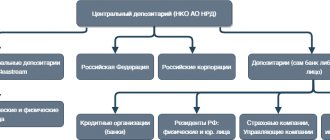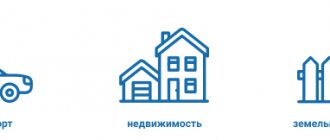When property is seized, the debtor shouts in panic, “What should I do?!” and rushes to the lawyers. He begs to be told how to get by with little blood and not allow the innocent cat Barsik to be arrested. Yes, yes, there are legends about the treachery of bailiffs. To force the debtor to pay, they resort to the most brutal methods.
If you already owe money and can’t pay it off, go to a lawyer in advance. He will explain in detail what can be property and how to protect those dear to your heart from arrest. It will also offer an option for debt restructuring and advise on how to pay it off faster.
Do you want to figure it out, but don’t have time to read the article? Lawyers will help
Entrust the task to professionals. Lawyers will complete the order at the cost you specify
174 lawyers on RTIGER.com can help with this issue
Solve the issue >
By the way, about Barsik, this is the absolute truth. The bailiffs described a cat as a luxury item for a malicious child support worker. And - lo and behold! Money for a child was suddenly found.
Why might a car be impounded?
An arrest involves the imposition of a ban on the disposal or use of property belonging to the debtor (defendant, suspect, accused), and in some cases the seizure of such property.
A car, like any other property, can be subject to seizure. Accordingly, registration of transactions with it (for example, purchase and sale) while under arrest is impossible.
The court or bailiffs can impose an arrest. It should be understood that the seizure of property is not a punitive measure. The main purpose of the arrest is to ensure the execution of a court decision to collect the amount of debt from the debtor, confiscate property, etc.
The car will be released from seizure if the grounds for its imposition are removed. For example, there is no need to apply arrest if the debtor has fully repaid the amount of debt.
As for the reasons for the seizure, there may be several of them. The most common:
- the owner of the car has a debt on a loan, for utilities, etc., the collection of which is carried out by bailiffs according to a writ of execution;
- initiation of a criminal case against the owner for crimes, as an additional punishment, for which confiscation of property is provided;
- filing a civil claim against the owner for debt collection, damages, or if the subject of the dispute is the car itself.
What should the debtor do?
Within five days after the inventory, the debtor may try to remove some of the seized items from the encumbrance. To do this, he files a statement of claim with documentary justification for the conclusion.
The debtor can simply wait for the repossessed items to be sold and the debt to be closed or reduced. After the inventory, the former owner of the assets can begin selling them himself. He needs to come to an appointment with the bailiff and write an application for independent sale of the seized items. This must be done no later than ten days after the inventory.
When permission is received, the debtor must transfer the required amount to the account of the executive body. When transferring money, you must indicate that it is being transferred for the sale of seized items.
A person who has no debts and no enforcement proceedings must be designated as the payer. After the funds are credited, this person will be considered the owner of the sold items; these items cannot be described again.
Ways to check a car for arrest and restrictions
There are many services that allow you to obtain information about a car, fines, and transactions with it. Such information can be provided by both public authorities and private organizations. The most famous state information resources are:
- service of the State Traffic Safety Inspectorate of the Russian Federation;
- service of the FSSP of the Russian Federation.
In addition to these resources, information about the car can be obtained on the portal of the Moscow government (for residents of Moscow and the Moscow region), on the website of the Russian Union of Auto Insurers, etc.
By VIN code
A VIN code is a unique vehicle identifier that is known to a limited number of people. Therefore, most services use it to check seizures, restrictions and obtain other information.
For example, to check using the traffic police database, you need the VIN code.
By license plate
With only the license plate information available, checking to seize the car is impossible.
However, by entering the car number on the traffic police website in the request field, you can find out, for example, about the presence of fines imposed on the owner for traffic violations. At the same time, knowing the car number, you can use the database of the Union of Auto Insurers to find out the VIN code:
- On the website of the Union of Auto Insurers, enter the car number in the request form. The service will indicate the MTPL policy number.
- Open the “Information about insured vehicles” tab and enter the policy number in the request form. The service will indicate the vehicle's VIN code.
What is a property seizure?
Seizure of real estate means the imposition of restrictions on actions taken with housing. This procedure is carried out to ensure that the owner of the living space does not change or the share of property belonging to the owner of the apartment does not decrease.
When arrested, the following actions are prohibited:
- sell real estate;
- arrange a lease for residential space;
- make an exchange or exchange of an apartment;
- transfer housing by will;
- draw up a deed of gift for living space;
- register an apartment as collateral.
It is important to note that the owner of the apartment does not have the right to perform all of the above actions, but he has every right to continue to live in the seized area.
How to check a car for arrest on the traffic police website
All data on prohibitions on registration actions, as well as the arrest of vehicles, is accumulated in the State Traffic Safety Inspectorate of the Russian Federation, because it is this government body that is authorized to carry out registration actions with cars. For the convenience of citizens, the State Traffic Safety Inspectorate website has a service for checking cars based on restrictions on registration actions.
After opening the service, in the “Vehicle Check” window, enter the VIN code. Checking is also possible using the body or chassis number. From the four check types below, select the last one: “Check for restrictions” and request a check.
If the data entered by the user matches the number (VIN code) in the database of the State Traffic Safety Inspectorate of the Russian Federation, the service will indicate that restrictions have been imposed on the registration of this vehicle or that it is under arrest. If there is no such data in the database, then the user will receive information that there are no matches, therefore, the car is free from arrest and restrictions.
Should the bailiff be allowed into the apartment or not?
In addition, the bailiff must obtain permission from a higher authority to allow him to invade someone else's apartment. And the senior bailiff, in turn, does not really like to make unnecessary problems for himself. He deals exclusively with those matters that may cause discontent in society or affect the political situation.
By creating obstacles for the bailiff on the way to your apartment, the credit debtor creates the opportunity for employees of this authority to commit a number of legal errors. This will be an excellent weapon against bailiffs during court hearings, when filing a complaint with the prosecutor's office and other governing bodies that have more rights compared to the bailiff.
It is important to understand that bailiffs do not come just like that. Most often they are sent by angry management. Also a lever for taking action is a complaint from a creditor. A wise debtor will make it clear to the bailiff that he will cause much more problems than the complaint received.
But there is no need to be afraid of the local police officer. He has much fewer rights than a bailiff. And he can break into an apartment only in three cases: the fact of committing a murder, when organizing the rescue of victims of a crime, and when hiding a fugitive from prison.
The most important thing is to remember that your home is inviolable and you need good reasons to break into it.
Check on the bailiffs website
Unlike the traffic police, the bailiff service does not take into account cars, but debtors. When opening the FSSP debtor verification service, you need to enter the following data:
- citizen's full initials;
- date of birth;
- region of residence.
If enforcement proceedings are being carried out against the debtor, the FSSP RF service will provide information about the amount of debt and the restrictions imposed.
We recommend checking the car using both services, since only together they can provide comprehensive information regarding the arrest or restrictions on a specific car.
Can bailiffs describe property? Do they have the right to do this?
Yes, definitely. When trying to understand how best to proceed when problems arise with bailiffs, the debtor needs to have a full understanding of what actions and events contribute to the appearance of bailiffs in your home. Firstly, there must be a delay in payments for the loan. Secondly, the bank, tired of waiting for the debtor to return the funds, files a petition with the bailiff. The bailiff's employees, in turn, review the received application and, if approved, clarify the place of residence of the loan borrower in order to visit him and describe his property. However, when inventorying property, certain conditions must be met.
What information can be obtained during verification?
In addition to data on the presence of arrest or restrictions, the information services of the State Traffic Safety Inspectorate of the Russian Federation and the Federal Bailiff Service of the Russian Federation provide other useful information.
So, for example, by finding the owner of a car in the list of debtors, you can find out some information about the collectors and the amount of the debt. This will determine the seriousness of the claims against the debtor. If the debt is significant, then the likelihood of seizure of the car is high. It is also possible that the owner has a debt, restrictions on the property have already been imposed, but the information on the traffic police website has not yet been updated.
As for the traffic police service, using it, you can find out about the number and amount of unpaid fines, previous transactions with the car, its participation in an accident, as well as whether the car you are looking for is wanted or not. All this information is also available by specifying the vehicle's VIN code in the request field.
Who seizes
According to current legislation, the property of an individual or enterprise can be seized:
- By a court decision as part of securing a claim (defined in Article 140 of the Civil Code of the Russian Federation). In this case, the plaintiff can be the claimant (the person to whom the debtor owes a certain amount of money), the investigative bodies or the preliminary investigation bodies. The last two structures must first conduct an investigation, on the basis of which they can decide on the need to seize property.
- By the bodies of the Federal Bailiff Service within the framework of enforcement proceedings initiated against an individual or legal entity.
- Federal Tax Service for the purpose of collecting funds to pay taxes to the state budget (defined by Article 77 of the Tax Code of the Russian Federation).
The Federal Tax Service can seize the property of debtors
How much does a check cost?
On the websites of the State Traffic Safety Inspectorate of the Russian Federation, the FSSP of the Russian Federation and the Union of Auto Insurers, you can check your car for free.
No registration is required to use these resources. On other services you will have to register or pay for the information provided.
So, the availability of services from the State Traffic Safety Inspectorate of the Russian Federation, the Federal Bailiff Service of the Russian Federation, and the Union of Auto Insurers allows you to obtain complete and up-to-date information about the vehicle you are purchasing, whether it is wanted, check for participation in an accident, and the number of previous transactions in a few minutes without registration and for free. By wisely using the available open data, you can be sure that the transaction will be safe, and the purchased car will not cause trouble in the future.
VAT – 2022
The best speaker on tax topics, , will prepare you for filing your return on January 14 . There are 10 out of 40 places left for the online workshop . The flow is limited, as there will be live communication with the teacher live. Hurry up to get into the group. Sign up>>>
Which accounts and incoming funds cannot be seized?
Law 229-FZ (Part 3 of Article 69) directly states which accounts cannot be seized by bailiffs:
- Nominal. Its owner is one citizen, and the actual owner of the funds received by him (the beneficiary) is another. For the debts of the owner, the account cannot be arrested under any circumstances; for the debts of the beneficiary - only by court decision (Clause 2 of Article 860.5 of the Civil Code of the Russian Federation).
- Collateral, where the debtor’s funds were deposited to secure any of his obligations.
- Clearing, since it stores money that will be used to secure obligations admitted to clearing.
- Trade.
This rule provides an answer to another popular question: can bailiffs seize a brokerage account. Yes, since it is not included by the legislator in the above list as an exception.
As for the collection of funds in the account, we should not forget about the list approved by Part 1 of Art. 101 of Law 229-FZ. It contains a list of those incomes that cannot be recovered. These include some types of pensions, compensation payments from the budget, from the employer or social insurance.
Bailiffs do not check the purpose of money received in accounts, so blocking is possible in practice, and to cancel it you will have to contact the SSP.
Receiving salary
No less important is the question of how to receive a salary if the bailiffs have seized the account. First of all, we should not forget about the restrictions on wage deductions established by Art. 99 of Law 229-FZ. If you are completely unable to use your salary, you must contact the bailiff with a statement and supporting documents. This could be a certificate from your place of work.
Another option to solve the problem is to receive your salary in cash at the organization’s cash desk. The employee retains this right, and the employer cannot deny him if he receives a corresponding application.







